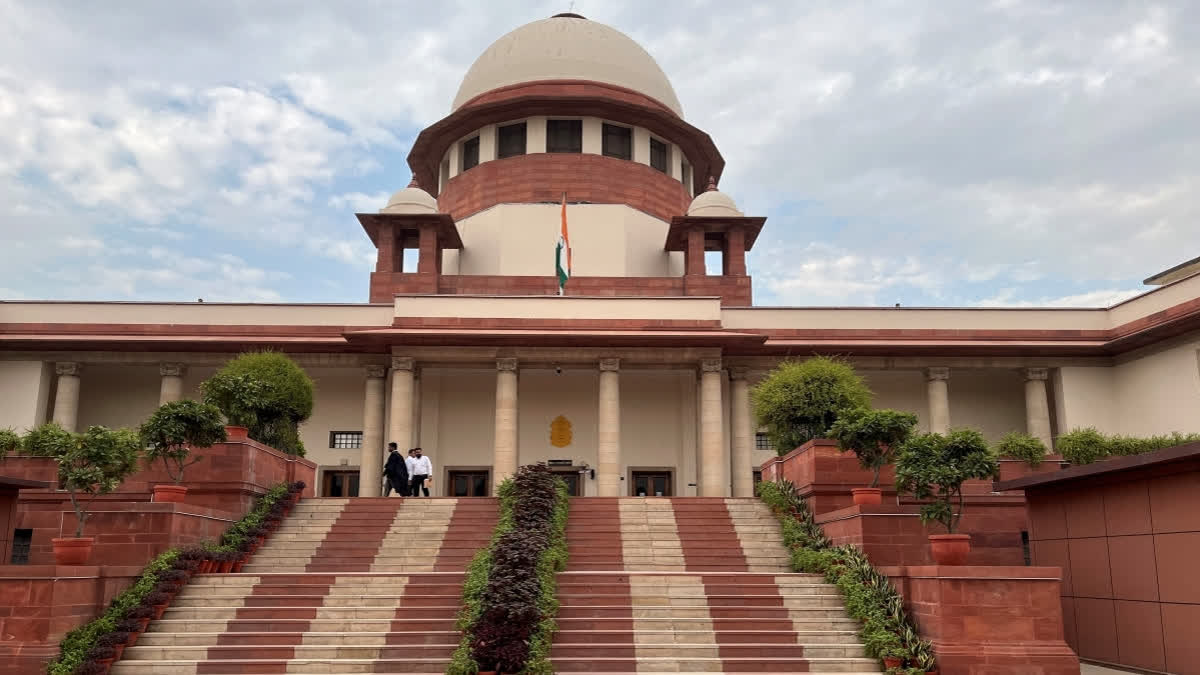New Delhi: In a landmark verdict, the Supreme Court on Monday unanimously upheld the Centre's August 5, 2019 decision to abrogate provisions of Article 370, while directing the restoration of statehood for Jammu and Kashmir at the earliest and holding of the assembly elections next year.
The apex court said that the erstwhile state of Jammu and Kashmir does not retain any element of sovereignty after the execution of the Instrument of Accession (IoA), and the order to scrap J&K's special status is constitutionally valid. The apex court directed the Election Commission of India to take steps to conduct elections to the J&K assembly by September 30 2024 and asked the Centre to restore statehood as soon as possible.
On September 5, the Supreme Court reserved its judgment on a batch of pleas challenging the abrogation of Article 370, which bestowed special status on the erstwhile state of Jammu and Kashmir. A five-judge bench headed by Chief Justice of India D Y Chandrachud and comprising Justices S K Kaul, Sanjiv Khanna, B R Gavai, and Surya Kant, heard the submissions in the matter for 16 days.
There are three judgments of the apex court – one authored by the CJI for himself, for Justice Gavai and Justice Surya Kant. There is a concurring opinion authored by Justice Kaul. Justice Sanjiv Khanna has concurred with both the judgments.
The CJI said: "The State of Jammu and Kashmir does not retain any element of sovereignty after the execution of the IoA and the issuance of the Proclamation dated 25 November 1949 by which the Constitution of India was adopted. The State of Jammu and Kashmir does not have ‘internal sovereignty’ which is distinguishable from the powers and privileges enjoyed by other States in the country. Article 370 was a feature of asymmetric federalism and not sovereignty."
The bench said the exercise of power by the President after the proclamation under Article 356 is issued is subject to judicial review. “The exercise of power by the President must have a reasonable nexus with the object of the Proclamation. The person challenging the exercise of power must prima facie establish that it is a mala fide or extraneous exercise of power. Once a prima facie case is made, the onus shifts to the Union to justify the exercise of such power”, said the CJI.
The apex court said it can be garnered from the historical context for the inclusion of Article 370 and the placement of Article 370 in Part XXI of the Constitution that it is a temporary provision.
“The power under Article 370(3) did not cease to exist upon the dissolution of the Constituent Assembly of Jammu and Kashmir. When the Constituent Assembly was dissolved, only the transitional power recognised in the proviso to Article 370(3) which empowered the Constituent Assembly to make its recommendations ceased to exist. It did not affect the power held by the President under Article 370(3)”, said the CJI.
The CJI said: “The exercise of power by the President under Article 370(1)(d) to issue CO 272 is not mala fide. The President in exercise of power under Article 370(3) can unilaterally issue a notification that Article 370 ceases to exist”.
The CJI said: “The Constitution of India is a complete code for constitutional governance. Following the application of the Constitution of India in its entirety to the State of Jammu and Kashmir by CO 273, the Constitution of the State of Jammu and Kashmir is inoperative and is declared to have become redundant”.
The CJI said: “We direct that steps shall be taken by the Election Commission of India to conduct elections to the Legislative Assembly of Jammu and Kashmir constituted under Section 14 of the Reorganisation Act by 30 September 2024. Restoration of statehood shall take place at the earliest and as soon as possible”.
Read More
Article 370 temporary, order to scrap J&K special status constitutionally valid: SC
Mehbooba Mufti 'put under house arrest' ahead of SC's verdict on Article 370
SC upholds bifurcation of J&K; unanimous judgements on Article 370



